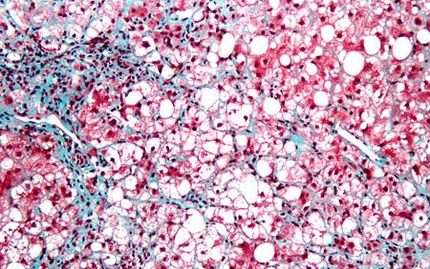European Medicines Agency advises on compassionate use of sofosbuvir
Conditions of use defined for patients with chronic hepatitis C infection before or after liver transplantation
The European Medicines Agency’s Committee for Medicinal Products for Human Use (CHMP) has given an opinion on the use of sofosbuvir, a medicine for chronic (long-term) hepatitis C virus (HCV) infection, in a compassionate-use programme. It is the third time a compassionate-use programme has been assessed at the European Union (EU) level.
Such programmes, set up at the national level, are intended to give patients with a life-threatening, long-lasting or seriously disabling disease who have no available treatment options access to treatments that are still under development and that have not yet been authorised. An application for authorisation of sofosbuvir was submitted by Gilead in April 2013. While it is currently under evaluation by the CHMP, Sweden has requested a CHMP opinion on the conditions under which early access to sofosbuvir in combination with other agents could be given specifically for patients before or after liver transplantation.
HCV infection is a major European public health challenge. It occurs in between 0.4% and 3.5% of the population in different EU Member States and is the most common single cause of liver transplantation in the EU.
There is currently no standard-of-care therapy available for patients with chronic HCV infection awaiting liver transplantation or for those who have undergone liver transplantation. For most of these patients, there are currently no approved treatment options. Many patients with HCV infection in the pre- and post-transplant setting are therefore in urgent medical need of therapy to prevent graft reinfection or to treat recurrent HCV infection in the graft.
The opinion concerns the use of sofosbuvir as part of a compassionate-use programme, for the treatment of adults infected with chronic HCV who are also:
- actively on the waiting list for liver transplantation and require treatment to prevent graft reinfection with HCV;
- or who have undergone liver transplantation and have aggressive, recurrent HCV infection resulting in progressive and worsening liver disease and are at high risk of death or decompensated liver failure within 12 months if left untreated.
Most read news
Other news from the department politics & laws

Get the life science industry in your inbox
By submitting this form you agree that LUMITOS AG will send you the newsletter(s) selected above by email. Your data will not be passed on to third parties. Your data will be stored and processed in accordance with our data protection regulations. LUMITOS may contact you by email for the purpose of advertising or market and opinion surveys. You can revoke your consent at any time without giving reasons to LUMITOS AG, Ernst-Augustin-Str. 2, 12489 Berlin, Germany or by e-mail at revoke@lumitos.com with effect for the future. In addition, each email contains a link to unsubscribe from the corresponding newsletter.
















































